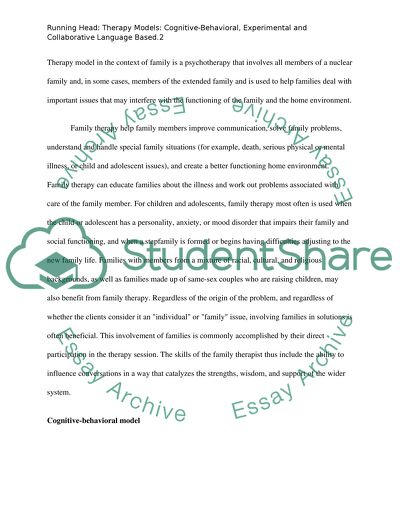Therapy Models - Experiential, Cognitive-Behavioral and Collaborative Research Paper. Retrieved from https://studentshare.org/psychology/1433668-therapy-models-experiential-cognitive-behavioral
Therapy Models - Experiential, Cognitive-Behavioral and Collaborative Research Paper. https://studentshare.org/psychology/1433668-therapy-models-experiential-cognitive-behavioral.


